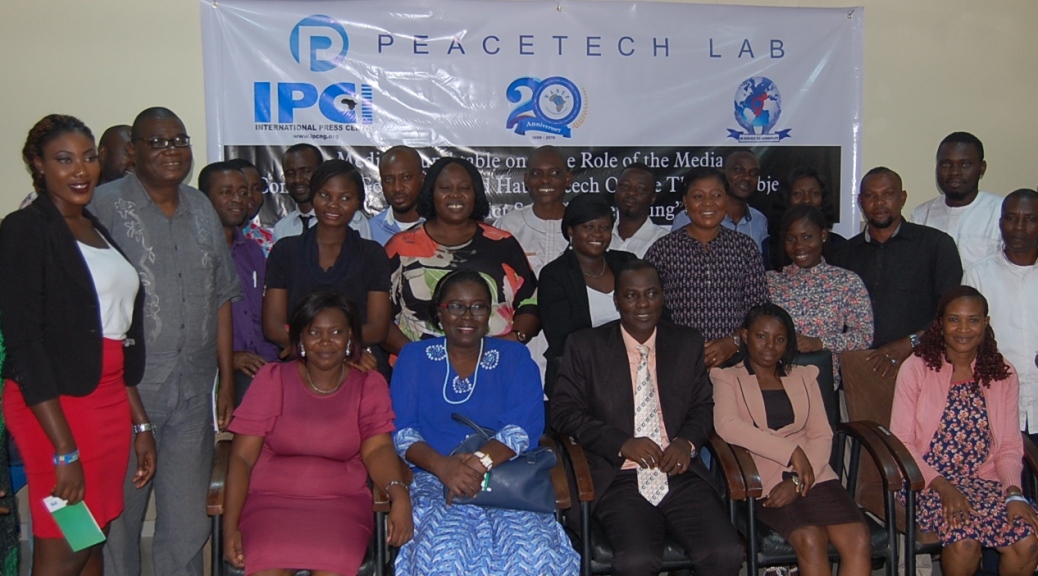-By Tobi Oyetunde-
Nigerian journalists have been encouraged to give women in politics more coverage in their daily reportage. The call was made by stakeholders in a media roundtable put together by International Press Centre (IPC), Humanity Family Foundation for Peace and Development (HUFFPED) and West Africa Network for Peacebuilding (WANEP) with the support of PEACETECH Lab.
At the event, WANEP presented the result of its online survey that showed that “women are not positively portrayed in the social media.” WANEP maintained that women participation in politics and assumption of a leadership role in the Nigerian political environment is pertinent and women should be encouraged to participate. It added that women participation could be achieved through the introduction and enforcement of a quota system.
A guest speaker at the event, Mrs. Yinka Shonubi, Editor, Health Style Plus Online, affirmed that the media has failed in giving women equal space they give to men in politics. She said that while men enjoy media presence, women were relegated and portrayed as second fiddle. She, however demanded that the media should stop the stigmatization of women and publications that could discourage them from aspiring for political positions.
Noting that, “Poverty is one of the hindrances to women contesting for political positions in Nigeria”, she posited that women should be granted the same opportunity as men.
“Women need to be given the same leverage and opportunity in politics to encourage more women in aiming for political positions”, Shonubi said. She further encouraged women to pull their weight to make their impact known and also urged the masses to support the right women to make them get to political positions/offices.
However, Mr. Bolaji Adebiyi, Editor of This Day newspaper, opined that the reason women are yet to get more media coverage could be because women in politics are not media friendly. He urged women to make a conscious effort in accessing the media.
“Women might not be media friendly which could be why they get less representation in media.
“Women should consciously approach the media and make information available to the media,” he said.
“Women have to put themselves in a position that when you come to me, you have a story to tell,” adding that it would make them get more representation in the media.
Also contributing, veteran journalist, Mr. Tony Iyare, stated that women would have to consciously strive to put themselves in the media.
“You don’t beg for power, you have to fight for it. Women should take strategic steps in using the media to make themselves known,” he said.
Meanwhile, the lead speaker, Mr. Lekan Otunfodurin, Managing editor, Online, Nation Newspaper, in his presentation, advised women to have thick skin that would enable them to absorb criticism and hate speech thrown at them in the media.
He also advised women to develop a strategy in making the media come after them for news.

